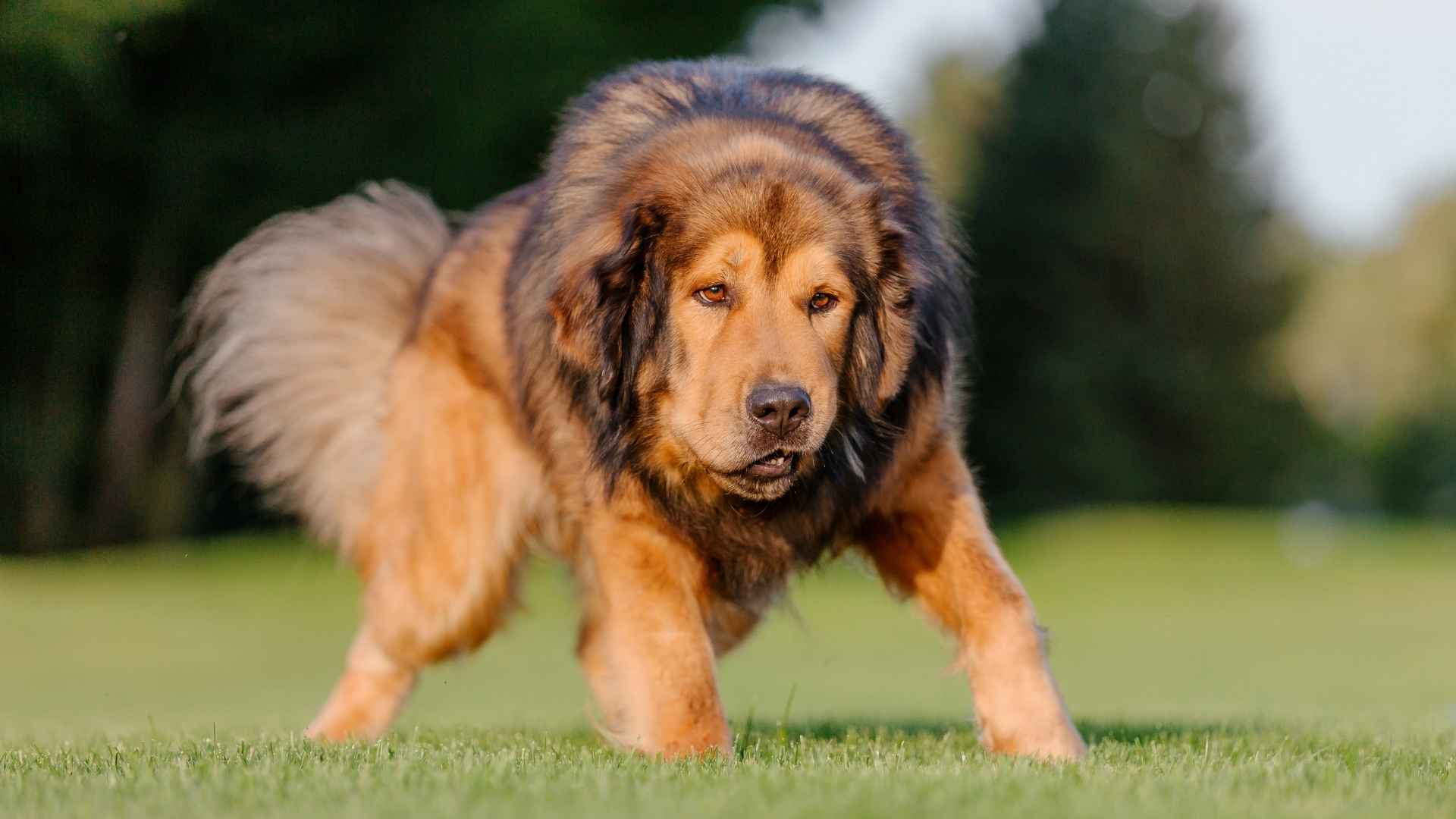Ever met a dog with a personality bigger than life? The kind that walks into a room (or a park) like they own the place? That’s what assertive dogs are all about—bold, confident, and ready to take charge. These dogs aren’t just pets; they’re natural leaders, fiercely protective, and packed with energy that keeps things exciting.
But here’s the thing—assertiveness isn’t just about being tough. It’s about intelligence, quick decision-making, and an unshakable bond with their humans. These dogs thrive when they have a job to do, whether it’s guarding, herding, or simply being the boss of the backyard. Without proper training and leadership, though, they might just take matters into their own paws!
So, if you’re looking for a dog that’s more than just a cuddly companion—one with confidence, drive, and a personality that stands out—you’re in the right place. Let’s dive into what makes these assertive breeds so special!
Very Assertive Dog Breeds
1. Belgian Malinois
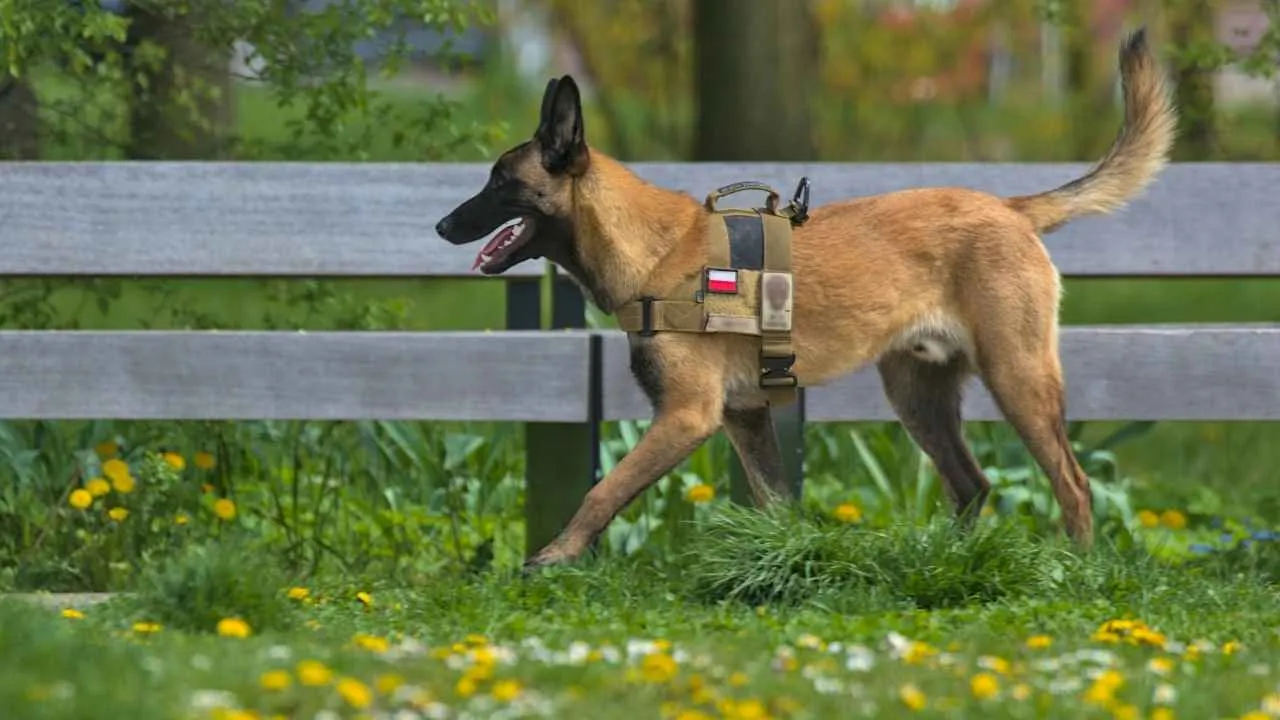
If there’s one dog that takes confidence to the next level, it’s the Belgian Malinois. These dogs aren’t just assertive—they’re downright unstoppable. Originally bred for herding, they’ve become the go-to choice for military and police forces worldwide. Why? Because they’re fearless, insanely intelligent, and have a work ethic that never quits.
Their energy levels are through the roof, and they thrive when given complex tasks. If you don’t keep them mentally and physically engaged, they’ll find their own way to burn off energy—usually in ways you won’t like! These dogs demand an owner who can match their drive and provide structure.
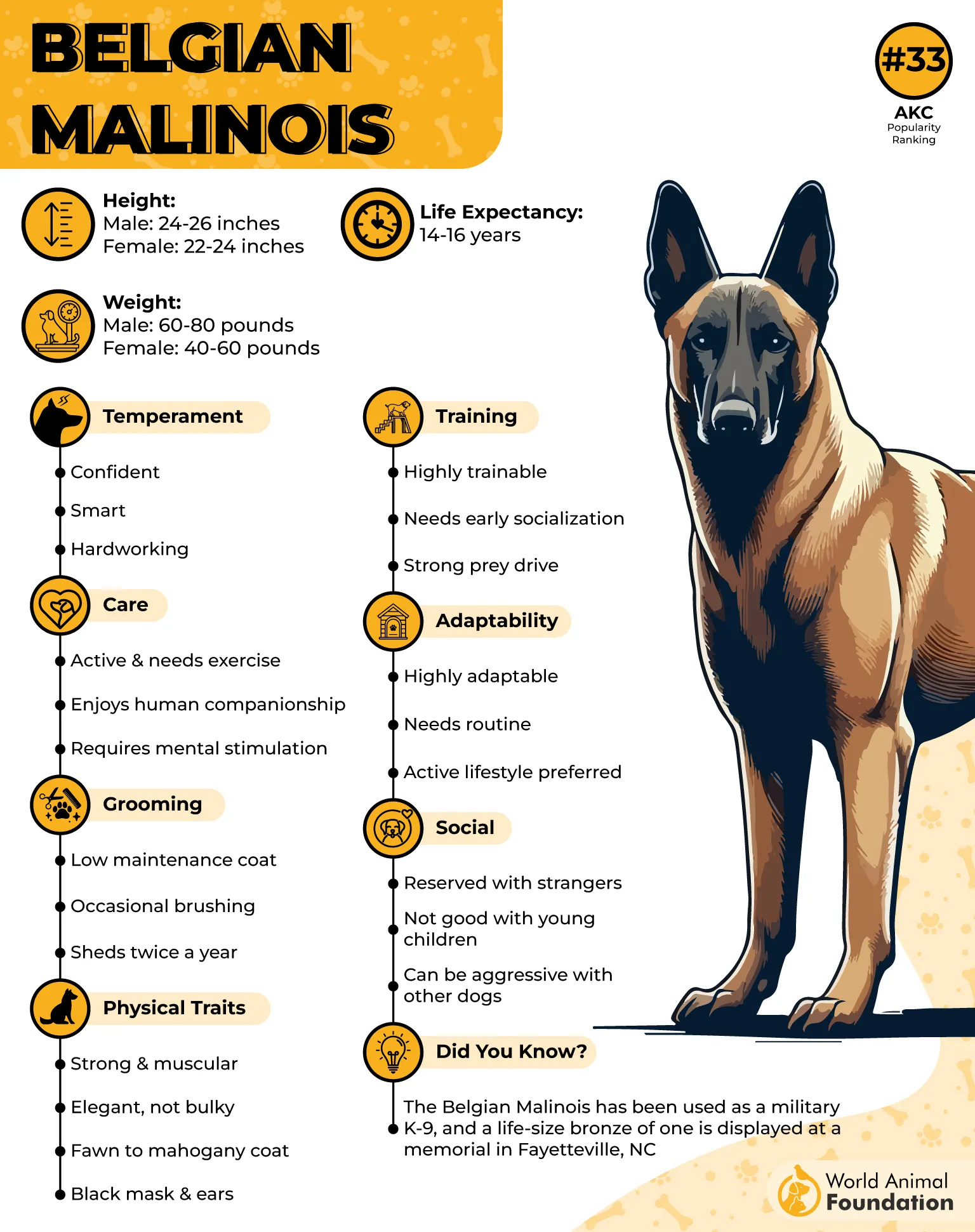
A Malinois doesn’t just react; they anticipate. Whether it’s sensing an intruder before you do or mastering commands in record time, their ability to read situations is almost eerie. It makes them elite working dogs, excelling in law enforcement, search-and-rescue, protection, and even high-stakes competitions.
Despite their tough exterior, Belgian Malinois are incredibly loyal, says PetMD. They don’t just bond with their owners—they become your shadow, always watching, always protecting. They form deep connections and expect the same dedication in return. If you want a dog that’s truly all in when it comes to loyalty, this is the one.
Their assertiveness means they don’t back down easily. Whether training, socializing, or introducing them to new experiences, you must be firm, consistent, and patient. If they sense weakness, they’ll take charge—and trust me, you don’t want a Malinois running the household! Leadership is key.
Fun Fact: The Belgian Malinois is so skilled in protection work that they’re often chosen over German Shepherds for military missions. A Malinois named Cairo was part of the team that took down Osama bin Laden!
2. Cane Corso
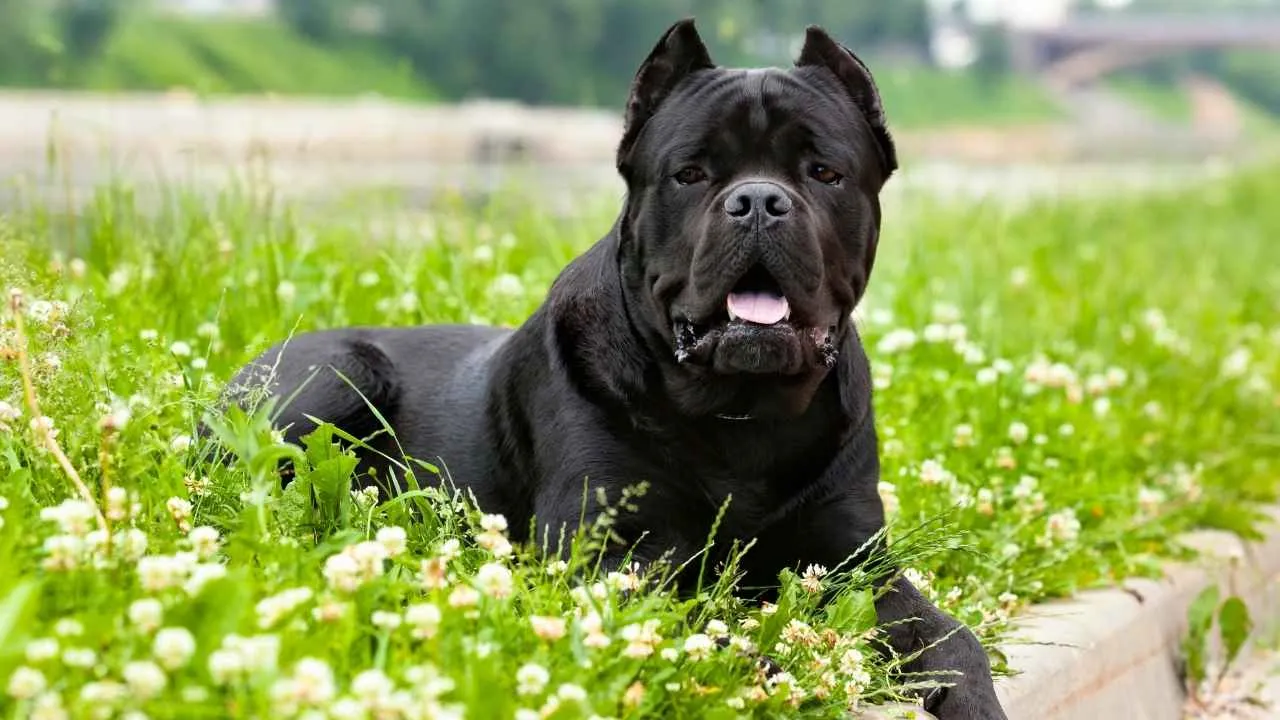
Cane Corso is a dog that looks like it walked straight out of an ancient battlefield. This dog breed is muscular, powerful, imposing, and packed with sheer confidence. Originally bred in Italy for guarding estates and hunting large game, the Cane Corso still carries that warrior spirit today. They don’t just protect; they dominate their space with an unmatched sense of authority.
Cane Corso forms deep emotional bonds with their owners despite their intimidating presence. They’re highly affectionate with their families, often displaying a softer side that outsiders rarely see. They don’t just want attention—they expect it.
According to the AKC, this breed is highly intelligent but also naturally dominant. Without clear rules and firm guidance, they’ll decide they’re in charge, and trust me, that’s not a power struggle you want to lose. Early training and consistent leadership are the only ways to ensure they grow into well-balanced dogs rather than stubborn, unmanageable protectors.
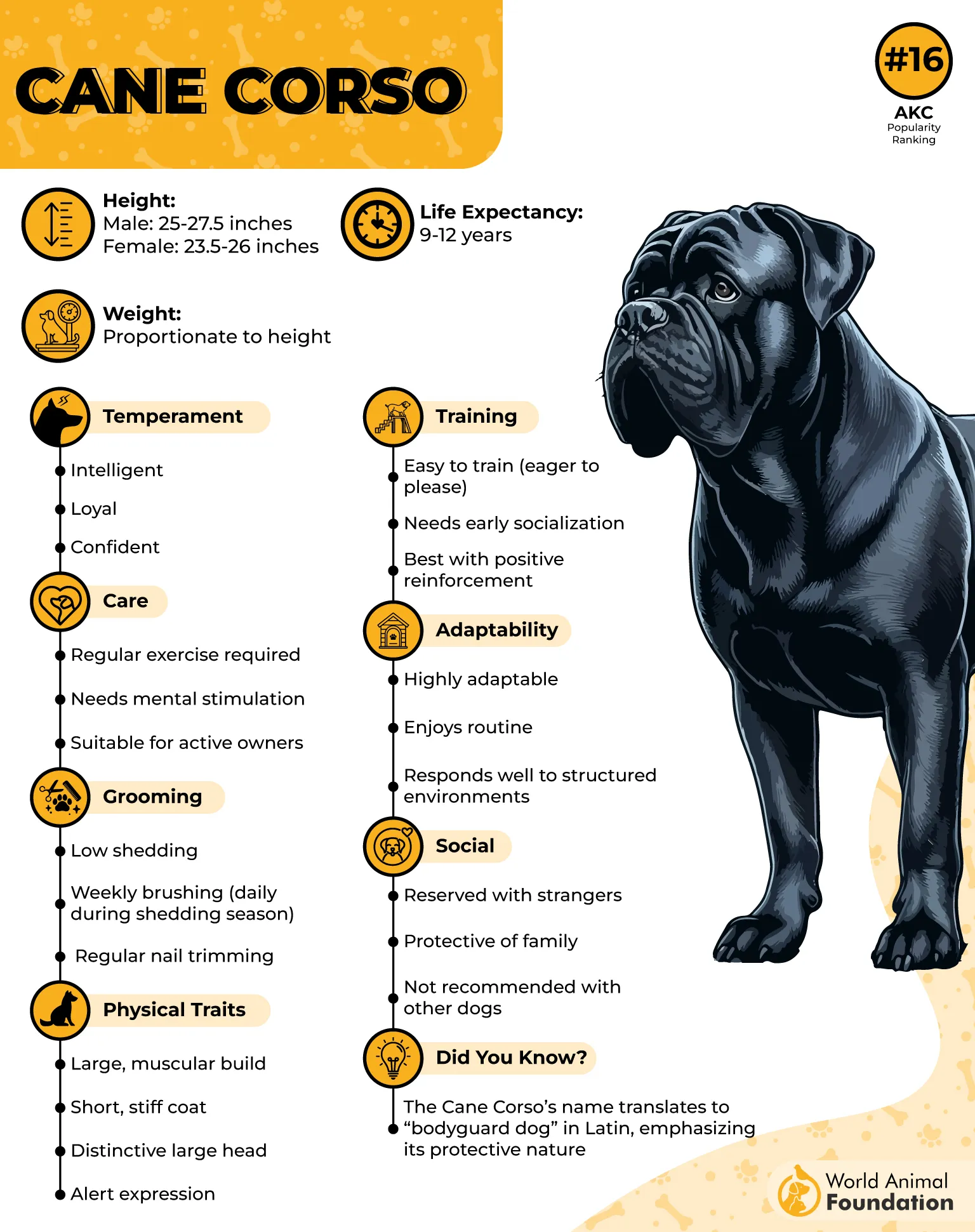
Early Socialization is another must. These dogs have strong territorial instincts, so they must be exposed to different environments, people, and animals from an early age. A well-socialized Cane Corso can distinguish between a genuine threat and a harmless visitor, making them an exceptional guardian without unnecessary aggression.
This isn’t a dog for the inexperienced owner. Cane Corso requires confidence, discipline, and time. If you’re not ready to take on the role of a strong leader, they’ll take over, and their natural assertiveness can turn into dominance. But in the right hands? They’re unmatched in loyalty, intelligence, and protection.
3. Doberman Pinscher
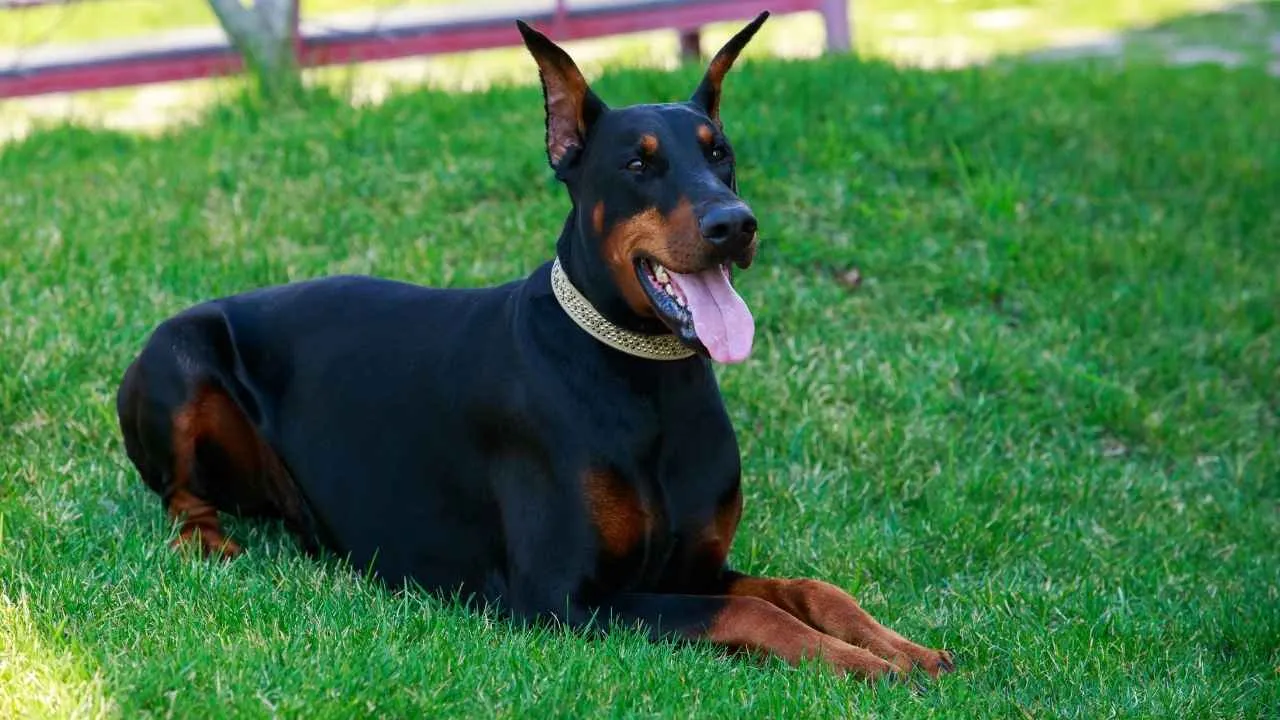
The Doberman Pinscher is a fast, fearless dog and always a step ahead. The ultimate combination of intelligence, agility, and unwavering confidence. Bred as a personal protection dog, this breed doesn’t just guard; it calculates, plans, and executes with precision. With their sleek, muscular build and intense gaze, they don’t just look intimidating—they mean business.
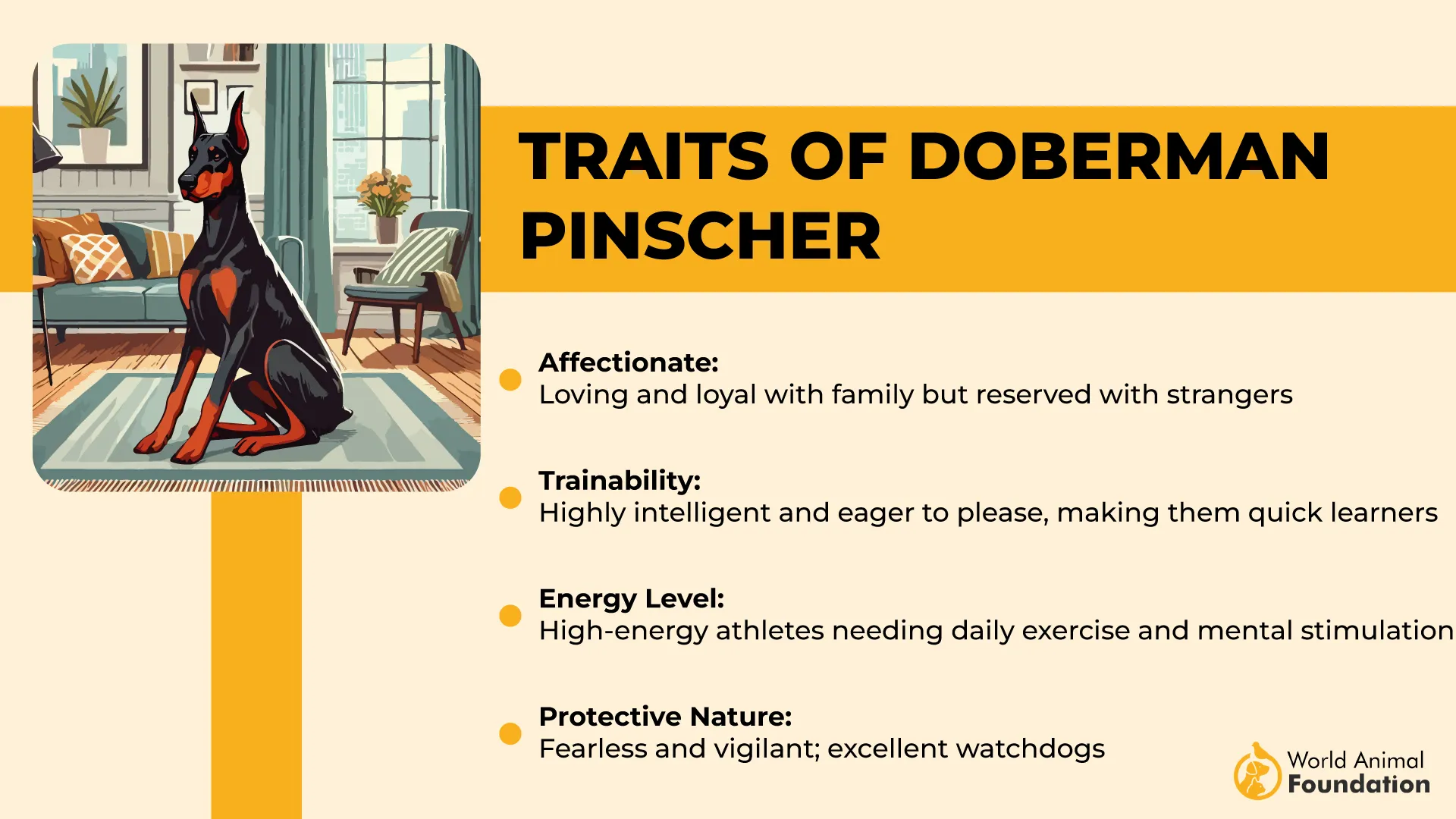
Dobermans bring speed and strategy into the mix. They can sprint up to 35 mph, making them one of the fastest guard dogs in the world. But it’s not just about physical ability—these dogs are incredibly sharp. They pick up on emotions, read body language, and react in an instant.
Loyal to the core, they form deep attachments to their families. But here’s the thing—while they’re loving and affectionate with their humans, they’re naturally wary of strangers. They don’t warm up easily, and they don’t give trust freely. It has to be earned.
PDSA states that these dogs are highly intelligent but also independent thinkers. If you’re inconsistent or passive, they’ll take the lead. Structured training, firm boundaries, and ongoing mental stimulation keep them engaged and prevent behavioral issues.
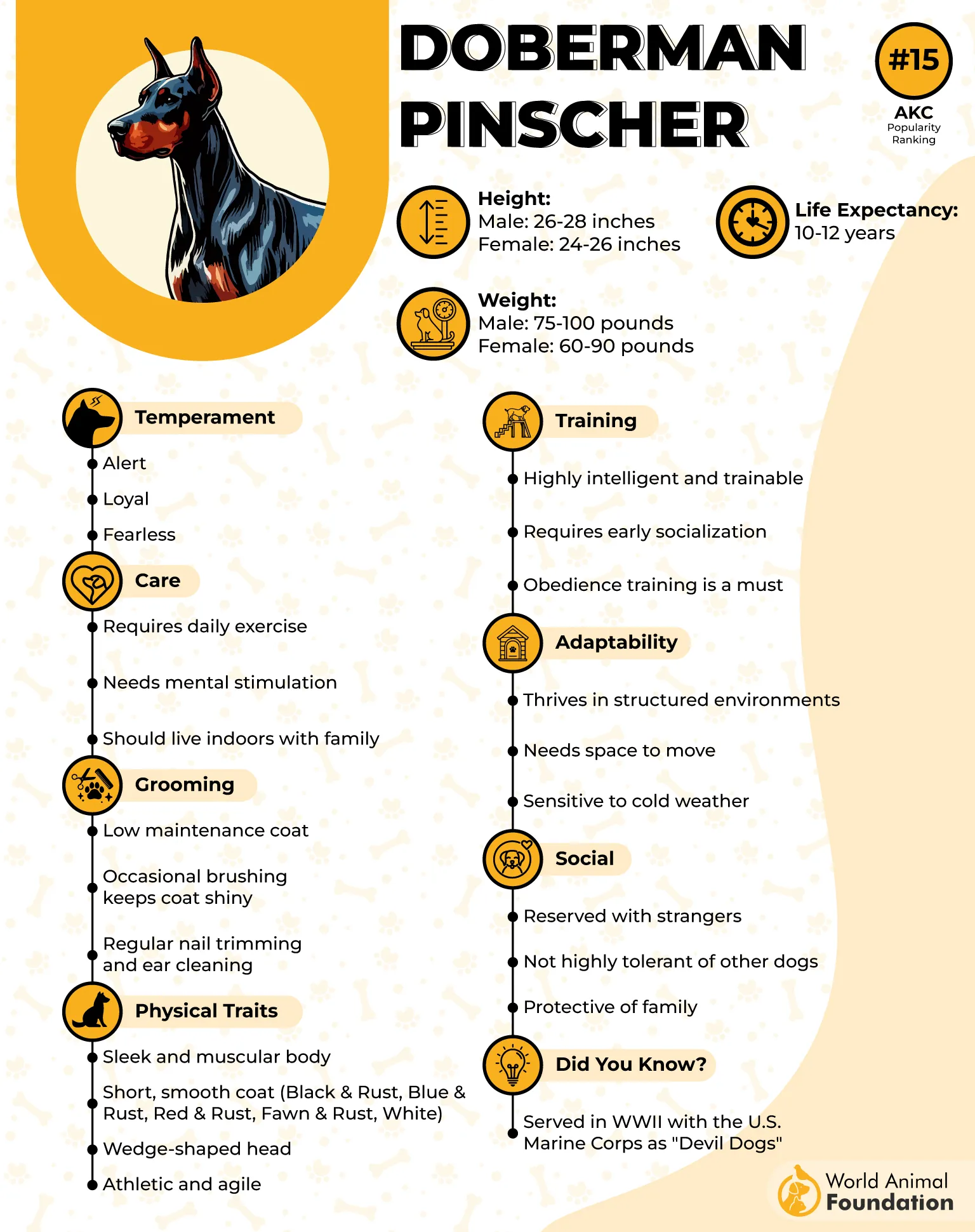
One thing that sets the Doberman apart is its balance of power and precision. They don’t lash out impulsively; they assess before they act. This makes them one of the best personal protection dogs because they don’t just defend blindly—they analyze threats and respond accordingly.
4. Rottweiler
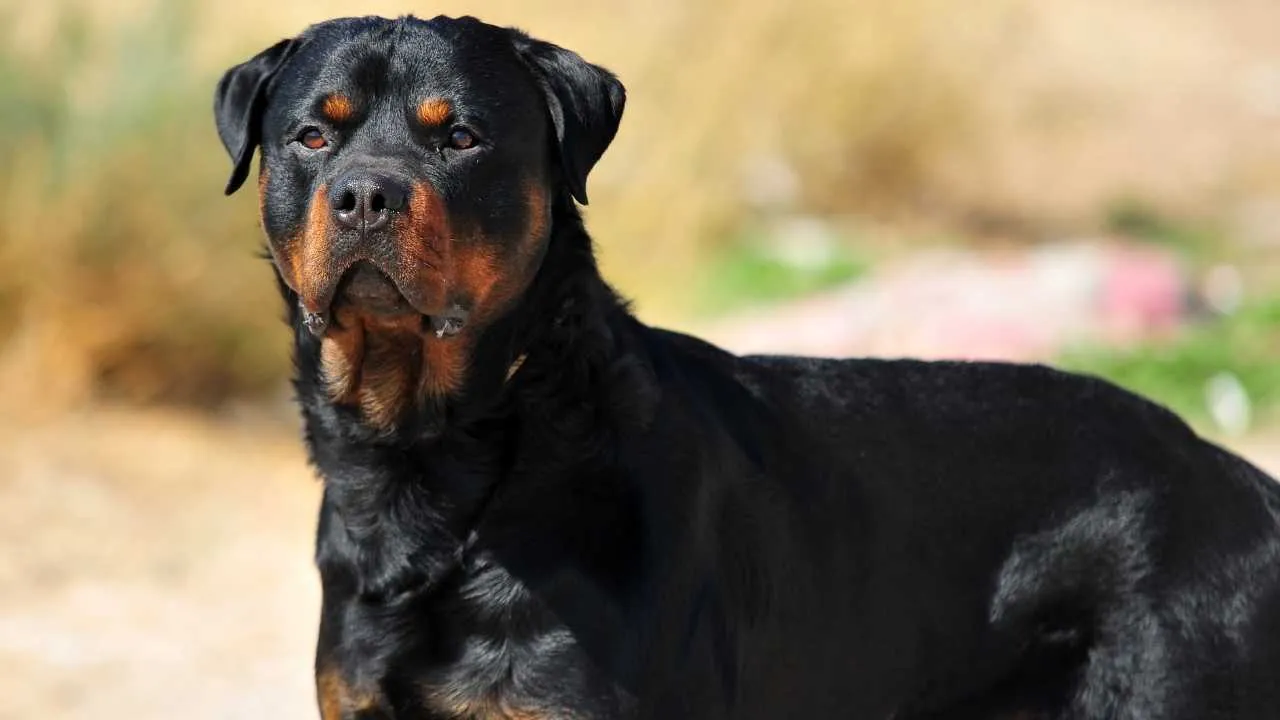
Rottweilers a muscular, confident, and completely unfazed by anything that doesn’t concern them. This breed isn’t just assertive; it’s the definition of controlled strength. Bred to herd livestock and guard valuable possessions, Rottweilers have retained their natural protective instincts. They’re not just watchdogs but guardians with an unshakable sense of duty.
Unlike some breeds that react impulsively, Rottweilers are calculated in their responses. They won’t waste energy on empty threats or unnecessary aggression. Instead, they observe, assess, and act only when necessary. If a Rottweiler steps up to protect, it’s already decided the situation is serious.
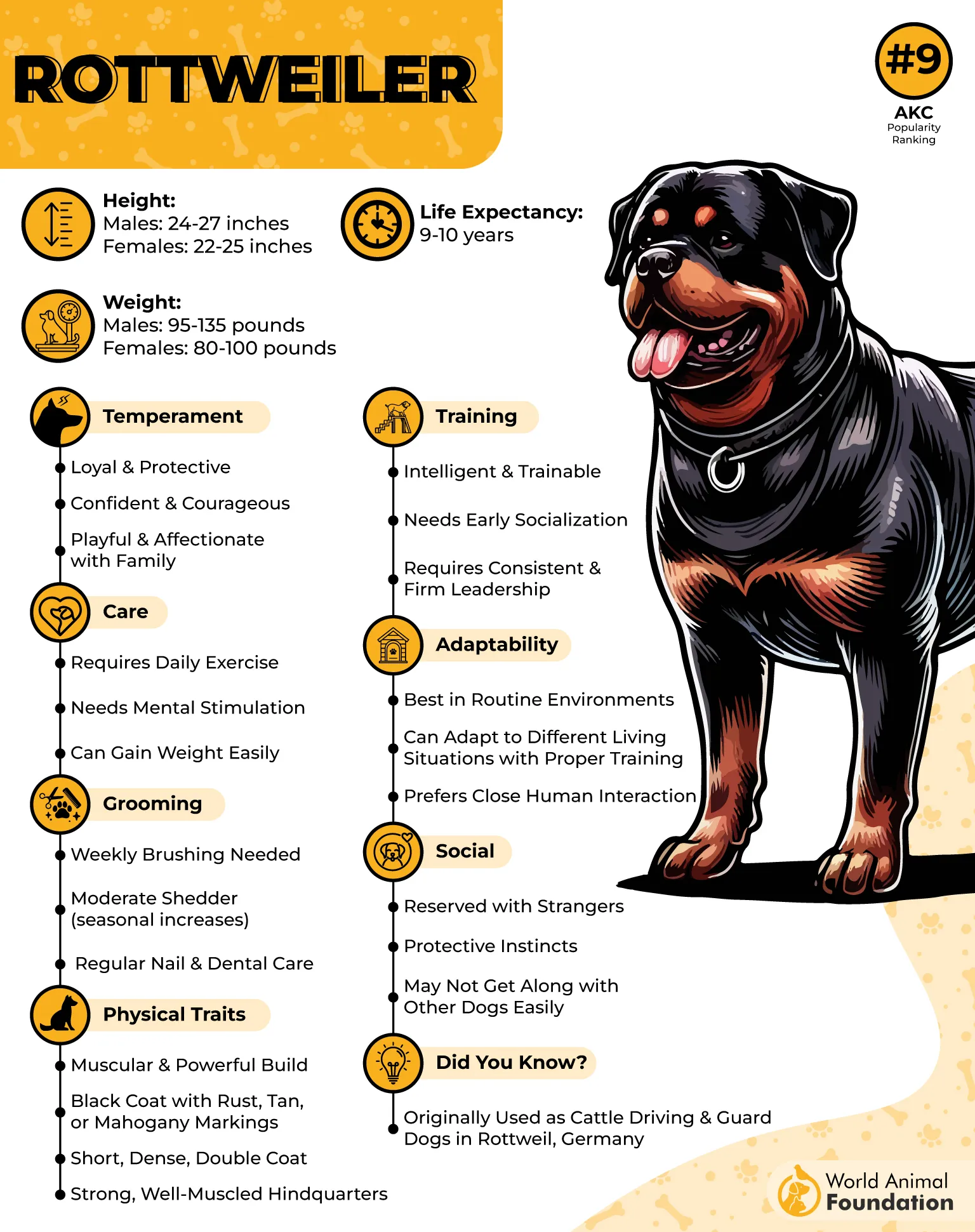
Loyalty runs deep in this breed, but it’s not the kind that makes them clingy. Rottweilers bond intensely with their families but don’t demand constant attention. Instead, they stay close, quietly watching over their loved ones. That’s why they’re often described as “thinking” dogs. Ever wanted a protector who’s always three steps ahead?
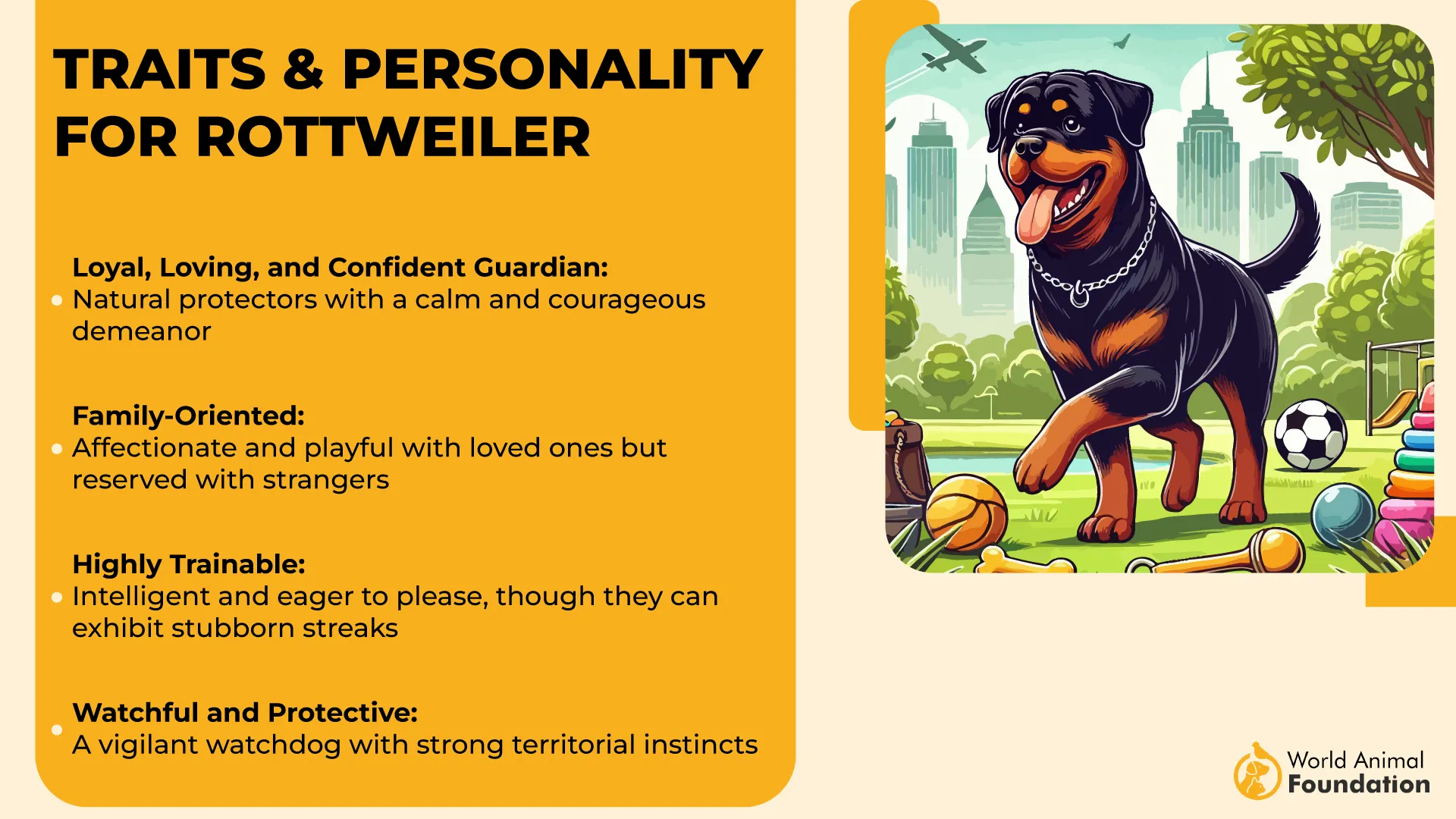
Physically, Rottweilers are built for endurance and strength. They have broad chests, powerful legs, and a bite force that’s one of the strongest among domestic dogs. That power needs an outlet—regular exercise, training, and structured play keep them mentally and physically balanced.
But here’s something most people don’t realize—Rottweilers have a playful, strong but loving side, states Purina. They’re goofy, affectionate, and even a little mischievous when they’re with their trusted humans. Their serious demeanor is reserved for strangers and potential threats.
5. German Shepherd
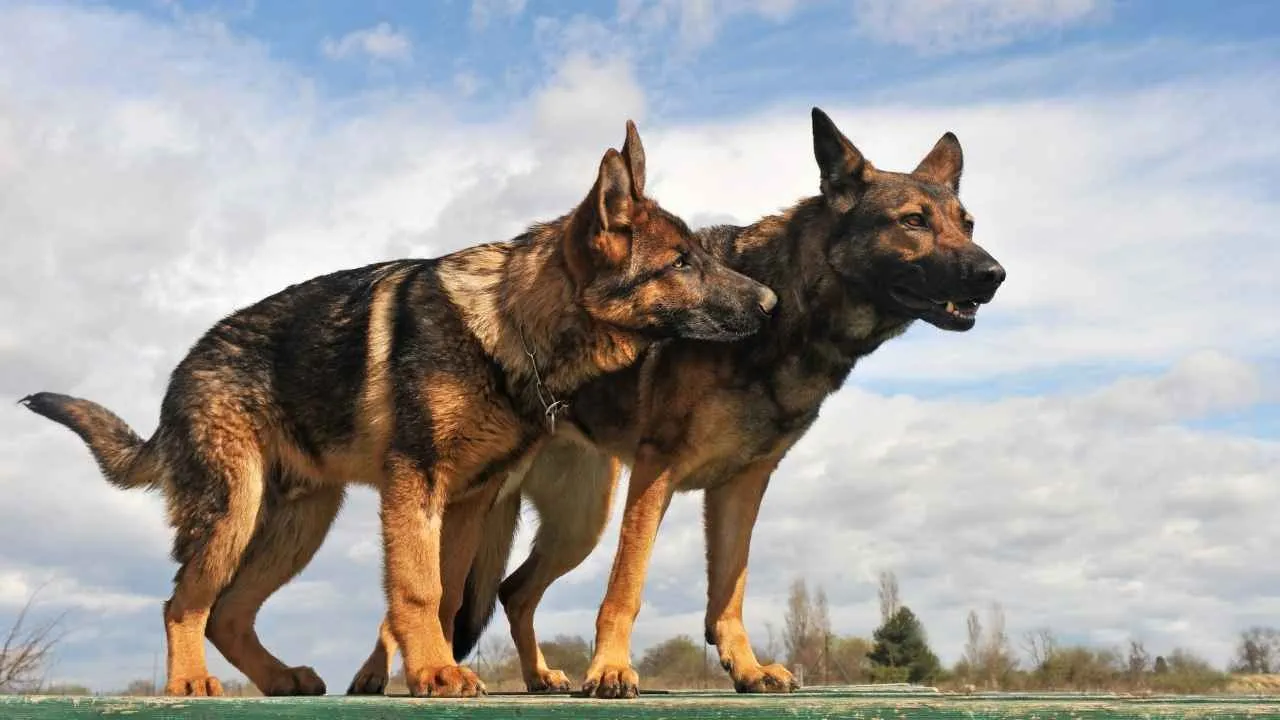
German Shepherd is a dog that can instantly switch from a loving family companion to a fearless protector. A breed that’s as intelligent as it is powerful. Known for their versatility, these dogs have served in police forces, military operations, search-and-rescue missions, and even as therapy dogs.
German Shepherds excel at reading their environment. They don’t just react—they analyze. That’s why they’re trusted in high-stakes jobs requiring quick decision-making. If a German Shepherd senses something is off, they won’t just bark aimlessly. They’ll track, investigate, and stand their ground when needed.
Loyalty? It runs deep in this breed. German Shepherds form strong emotional bonds with their families, often choosing one person as their primary handler. According to the AKC, they do not give affection lightly. Instead, they’ll follow their humans like a shadow—always nearby, always watching, always ready.

One thing that sets German Shepherds apart is their work ethic. These dogs don’t just like having a job; they need it. Training isn’t just an activity—it’s their purpose. If left without structure, they can become anxious or destructive. That’s why they thrive in adGive them a task, and they’ll take it seriously.
Despite their tough exterior, these dogs have a softer side. When they trust you, they’re incredibly affectionate and even goofy. They love playtime, belly rubs, and spending time with their family. But don’t mistake their kindness for weakness—when the time comes to protect, they won’t hesitate.
6. Akita
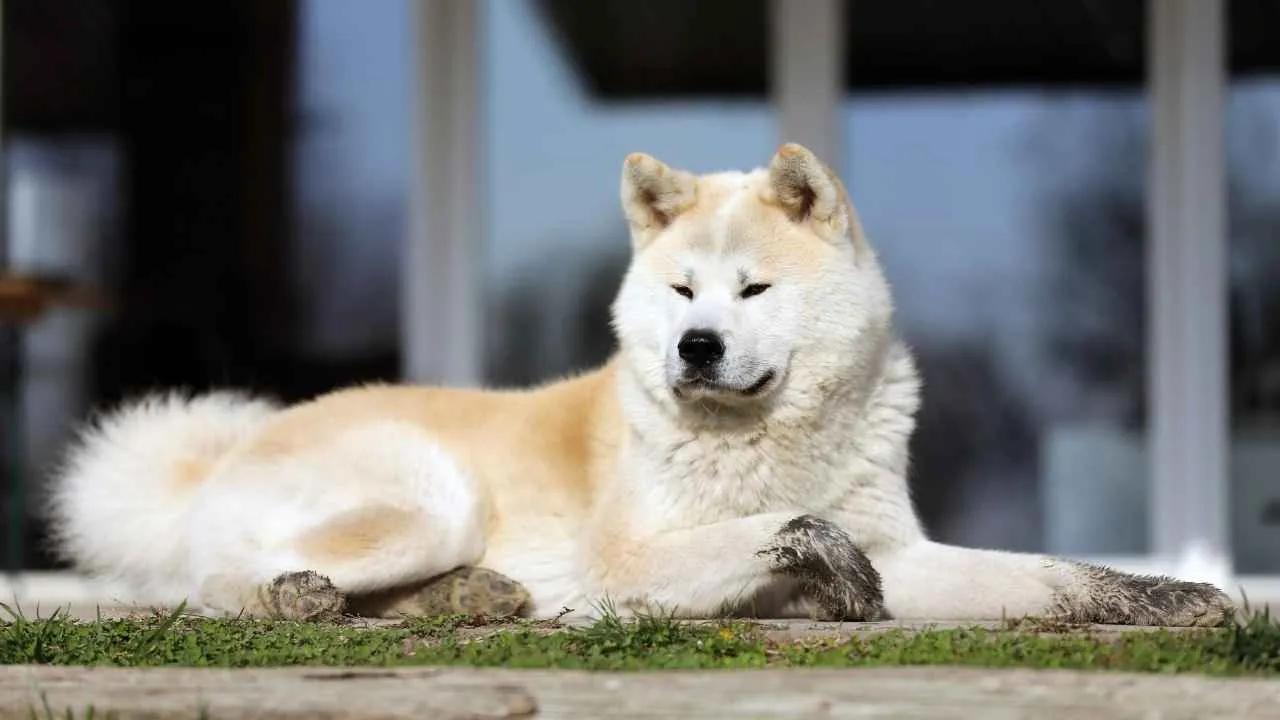
Akita is a dog that exudes quiet confidence without even trying. A breed that doesn’t bark much, doesn’t show fear, and certainly doesn’t back down. Akita’s natural dominance makes them one of the most assertive dog breeds. They don’t need to make a scene to be respected—their mere presence commands attention.
One of the most intriguing things about Akita is their independent mindset. They’re not blindly obedient—they decide whether a command is worth following. That doesn’t mean they’re untrainable, but it does mean that training requires patience and consistency.
Socialization is crucial with this breed. Without early exposure to different people, environments, and situations, Akita can become overly suspicious or even aggressive. They’re naturally dominant and can be territorial, so controlled introductions to new experiences help shape them into well-balanced dogs.
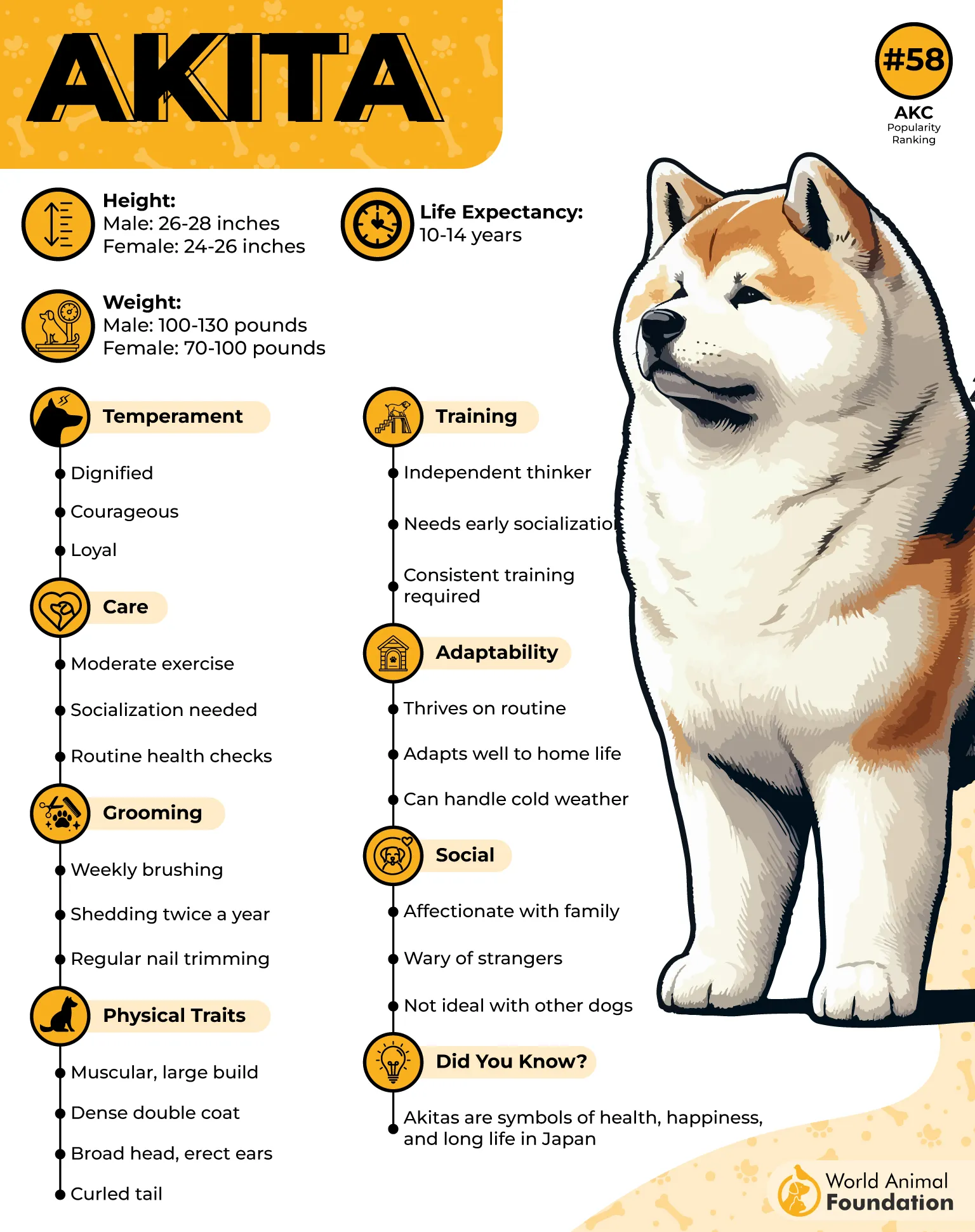
Physically, Akita are built like warriors. With a broad chest, thick double coat, and muscular frame, they’re incredibly strong and loyal, describes AKC. Their bite force is one of the most powerful among domestic dogs, and their endurance allows them to handle challenging tasks.
But beneath that serious demeanor, Akita has a playful and even quirky side. With their families, they can be surprisingly silly, known for their signature “Akita grins” and love for carrying objects in their mouths. They have a cat-like cleanliness, often grooming themselves like felines.
7. Bullmastiff
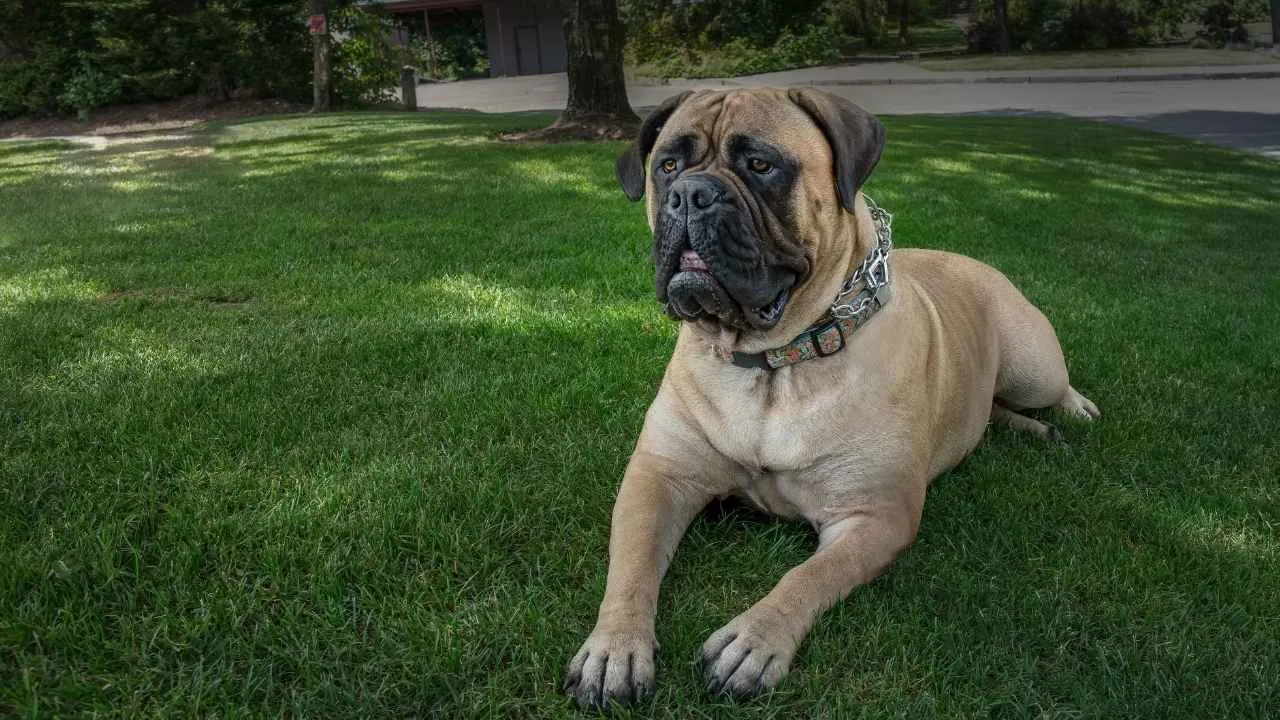
The bullmastiff is a dog that doesn’t need to bark or growl to make intruders think twice. A breed that redefines quiet strength. Bred specifically to guard large estates from poachers, Bullmastiffs were trained to track, pin, and hold intruders without making a sound.
One of their standout traits is their patience. Despite their size and strength, Bullmastiffs are surprisingly gentle with their families. They’re excellent with kids, often tolerating rough play without getting overly reactive. They have a protective yet nurturing instinct, stepping in only when they feel their loved ones are in danger.
Training a Bullmastiff requires a balanced approach. According to PetMD, they’re intelligent but not overly eager to please, meaning they respond best to firm yet fair leadership. Harsh training methods won’t work on them, but consistency and positive reinforcement go a long way.
Physically, Bullmastiffs are powerhouses. Their muscular build and immense strength allow them to take down much larger opponents. Despite their bulk, they’re surprisingly agile, able to move quickly when needed. Unlike some high-energy breeds, they’re not overly hyper but require regular exercise to stay fit and mentally stimulated.
One unique thing about Bullmastiffs? They have an almost uncanny ability to sense emotions. If their owner is upset or stressed, they’ll instinctively offer quiet companionship, often leaning against them for comfort. They don’t demand attention, but always know when you need them most.
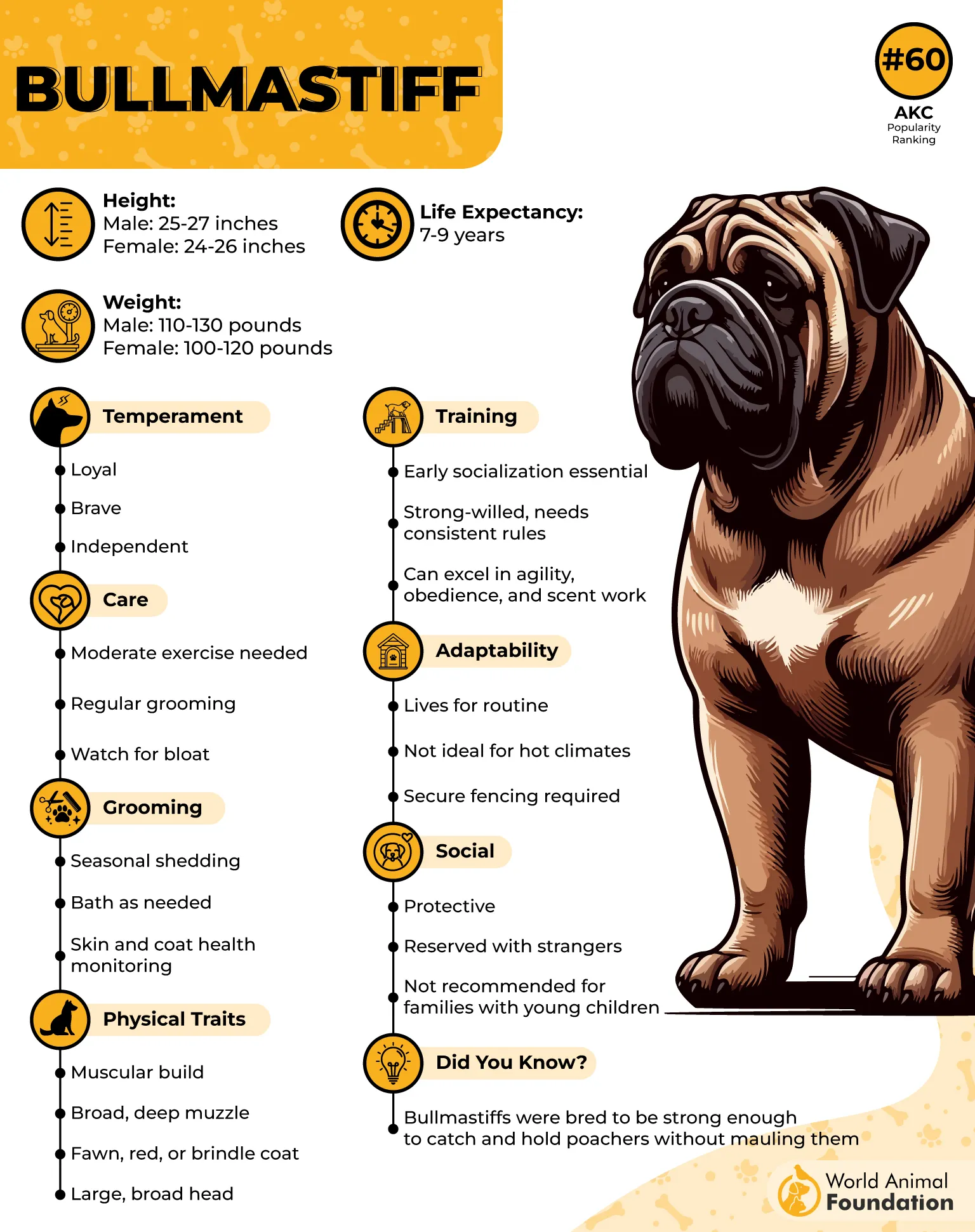
Fun Fact: Bullmastiffs are known as the “Gamekeeper’s Night Dog” because they were bred to guard British estates without making noise. Their job was to track intruders and hold them down until help arrived silently—talk about an elite security system!
Conclusion
Very assertive dog breeds are known for their strong-willed, highly protective, and naturally aggressive tendencies, making them excellent guard dogs when trained properly. German Shepherds, Rottweilers, Doberman Pinschers, Cane Corsos, Belgian Malinois, and Neapolitan Mastiffs are among the most intelligent dog breeds originally bred for protection, law enforcement, and military work.
Some aggressive dog breeds like Pit Bulls, Chow Chows, and the Canary Mastiff have been associated with dog fighting due to their dominant behaviors. Still, they can become great family pets with proper training, early socialization, and regular exercise. Even small dog breeds, such as Airedale Terriers, exhibit aggressive behaviors if not properly trained and given enough mental and physical stimulation. Responsible pet parents should focus on consistent training, early training, and mental stimulation to curb potential behavioral problems in aggressive protectors like hunting dogs and working dogs.
While certain breeds are genetically predisposed to aggressive behaviors, proper socialization from a young age helps ensure they coexist safely with family members, small children, and other animals. Police dogs and service dogs, such as Belgian Malinois and German Shepherds, showcase how assertive breeds can be transformed into loyal human companions when given proper training and behavioral correction. For those considering assertive dog breeds, it is essential to invest in training dogs from an early stage and provide them with sufficient physical stimulation to prevent behavioral issues.


